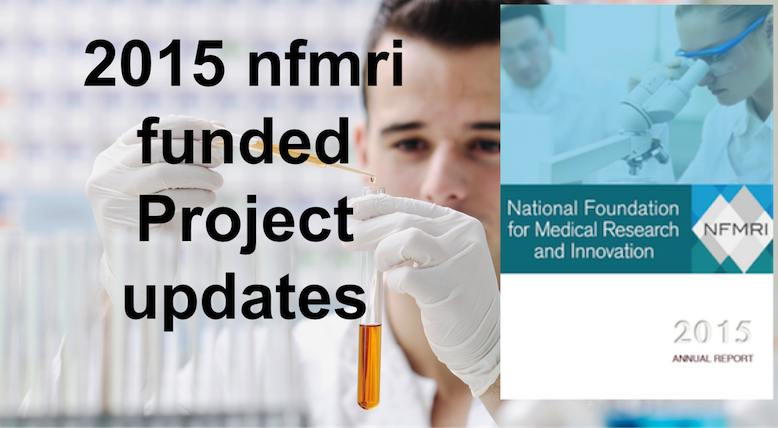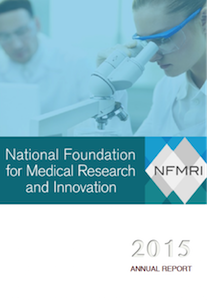Highlighting some of the advances made in NFMRI funded medical research. See more in our annual report. |
Prof Michael Good AO
Institute for Glycomics, Griffith University
Field: Rheumatic heart disease (Group A Streptococcus)
Innovation: Potential new vaccine
Professor Michael Good AO was awarded an NFMRI grant commencing in 2015 to support the production and testing of a GMP-grade peptide conjugate vaccine to prevent infection with group A streptococcus – the causative agent of tonsillitis, deep tissue sepsis, pyoderma and rheumatic heart disease.
Despite the project only commencing in early 2015, support from the Foundation has already assisted Professor Good and his team to attract the interest of a multinational pharmaceutical company.
They have now entered into a formal relationship with that company and pending the achievement of certain endpoints are hopeful of licensing the technology to the company.
A/Prof Janet Davies
Queensland University of Technology
Field: Asthma and Allergies
Innovation: Potential new vaccine
A/Prof Janet Davies was awarded an NFMRI grant commencing in 2015 to help develop an improved allergen immunotherapy vaccine targeting subtropical grass pollens. Despite only receiving funding for less than a year, A/Prof Davies is already attracting industry interest, and has recently been promoted to Associate Professor after accepting a promotion at the Queensland University of Technology.
She was recently selected as a finalist in the Queensland State Government and Johnson & Johnson Innovation Quick Fire Challenge. As a finalist she will also be receiving mentoring from the Johnson & Johnson mentors ahead of the final live presentation in front of a panel of judges, which is set to take place on the 21st of March 2016. The challenge will award a top prize of AUD $100,000 for up to three winners with innovative ideas.
The outcomes of this research will have the potential to meet the growing needs of patients with allergies in subtropical regions of Australia, Asia, Africa and America
Prof Stephen Haswell
Deakin University
Field: Infectious diseases
Innovation: Potential new detection and diagnostic device
Funded through a partnership between the NFMRI and the NSW Department of Primary Industries, Professor Haswell’s project focuses on the design, manufacture and commercialization of a cost-effective lab-on-a-chip device that can rapidly identify the presence of infection and the causative virus from a range of existing possibilities. The analytical chip, which will cost less than $20, will take lass than an hour to generate results and will be able to be linked wirelessly to a database to produce a range of control and treatment options, including vaccine-specific selections, where appropriate.
This project has been progressing exceptionally well. Formatting of the initial three chip functions and intermediary conduits have now been completed and are currently being optimised. Professor Haswell and his team have been carrying out the work in close collaboration with both end users (NSW DPI and AAHL) and technology providers (MiniFAB and Romar) to ensure the technology is both fit for purpose and commercially available.
Further developments are currently being implemented, with the team already in the process of looking to the scalable manufacture of the control device and analytical chip in a facility compliant with quality systems. This technology will help minimize the spread of infection and will enable better disease management strategies to be developed. This project is quickly moving towards being a spin-off opportunity.
Don’t miss out on your opportunity to join the conversation in Brisbane on the 18/19 October 2016 at our conference “Supporting Biomedical Innovations: Getting Innovations on the Right Track”
“Proudly supported by the Queensland Government’s Advance Queensland initiative”


